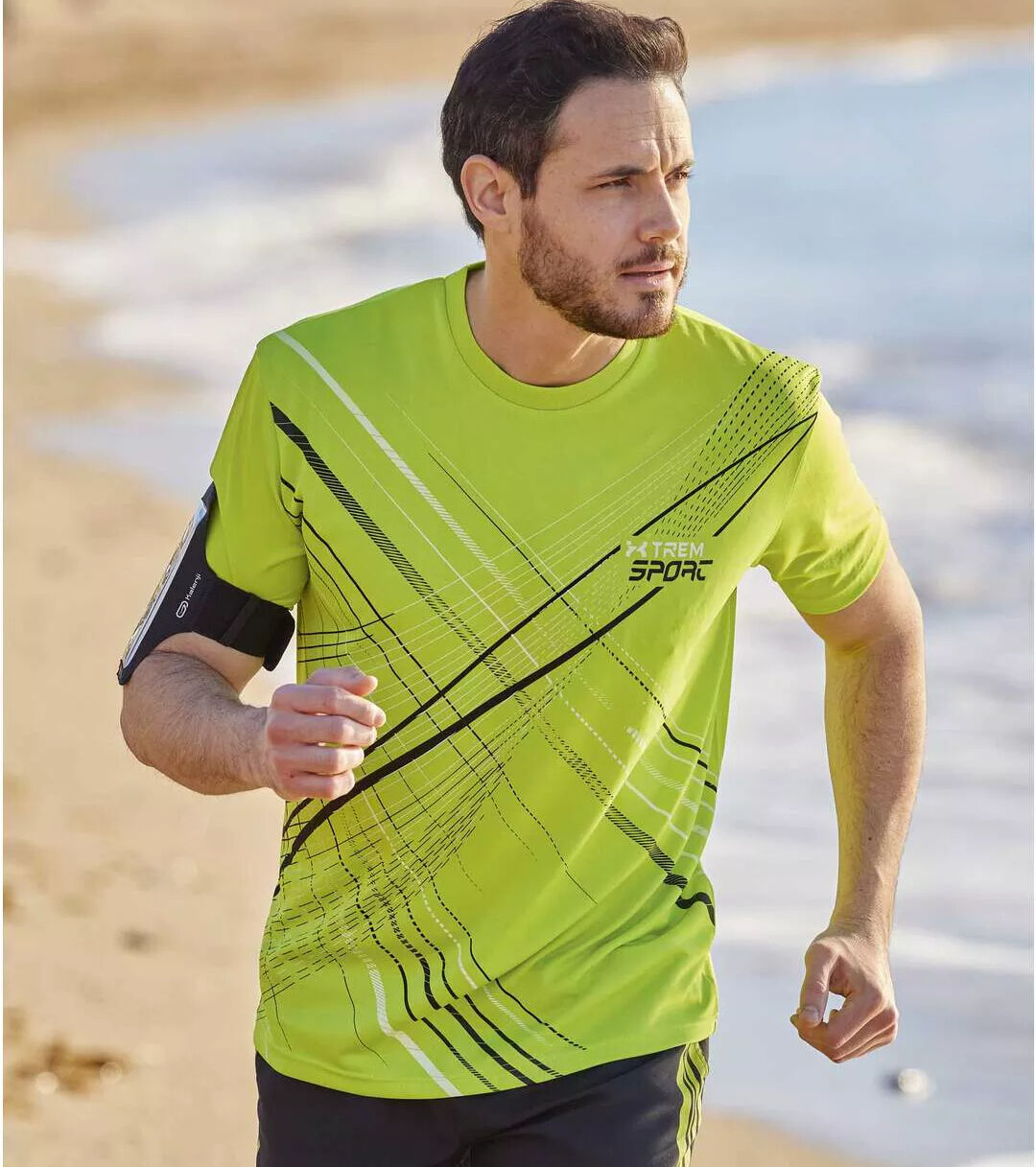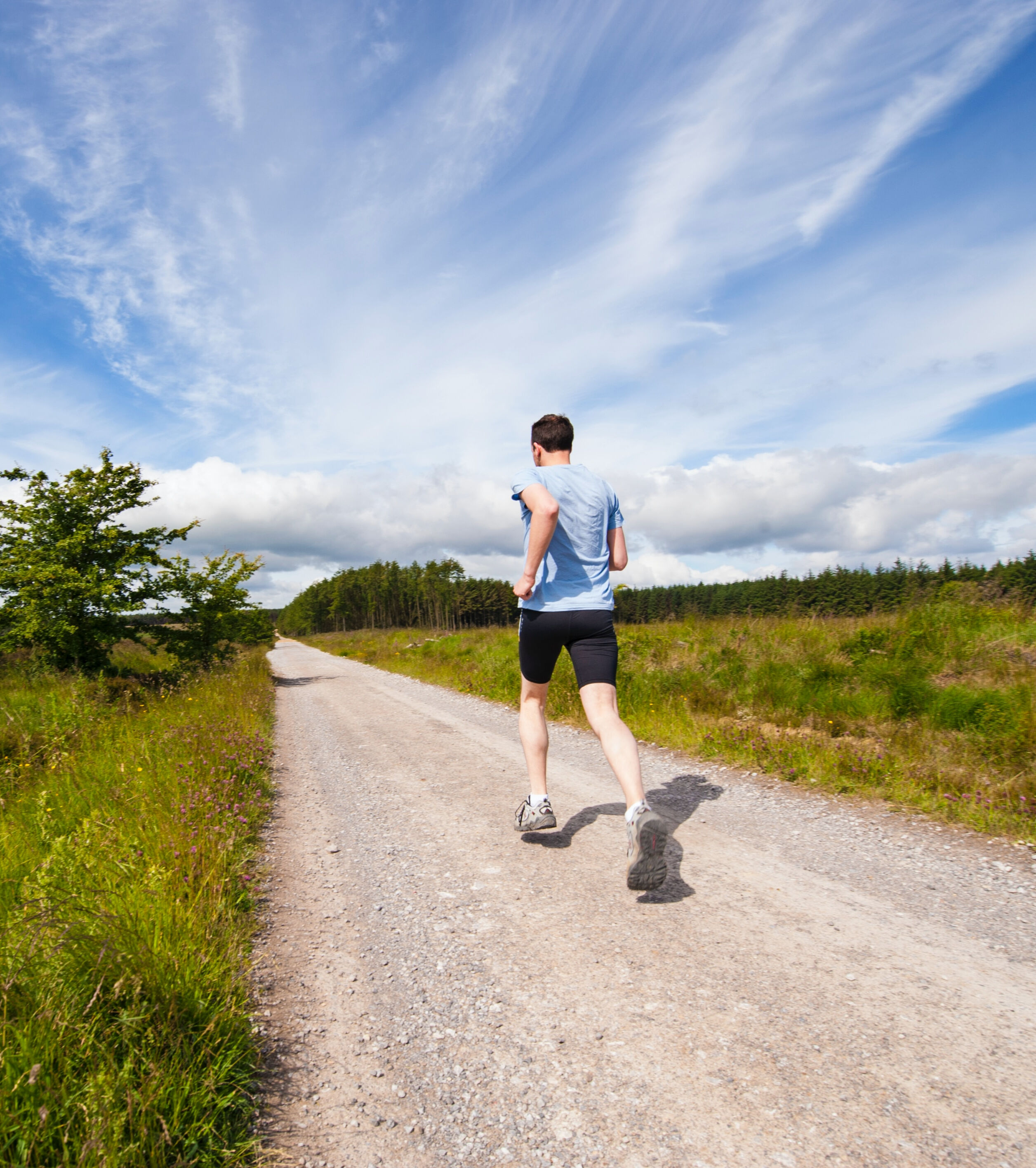
How to Get Into Running: Our Top Tips and Tricks For Beginners
Running can always be a bit of a daunting thought for beginners. You may be concerned about being too slow, running out of breath too quickly, or simply wanting to give up after a few attempts. But there’s no need to sweat it – we’re here to help you get on the right track with a little advice and encouragement! You’ll soon realise that running will do you the world of good. It has a multitude of physical benefits, including strengthening your muscles, improving your fitness, and helping you maintain a healthy weight. But that’s not all. Running is also great for your mind, boosting your mood and reducing stress. And with the days getting longer and the sun making more of an appearance, it's the perfect time to lace up your shoes and get outside! So, if embarking on this new sporting challenge is of interest to you, stay tuned and soak up our top tips for running newbies...
Don't know where to start with running? First, make sure you have the correct gear, whether you run in the rain, the cold or the heat!
The first rule of running is to make sure you're prepared before setting off, as maximum comfort from the get-go will help you clock up those miles. It's important to choose clothes that fit you well, to avoid having to adjust them mid-run. We recommend wearing joggers or shorts with an adjustable drawstring, as they will stay nicely around your waist for the duration of your run. Equally as important, you'll need to make sure that your running gear is suitable for the season. Opt for loose-fitting polyester sports t-shirts for when it's mild outside, as they dry quick, absorbing sweat and keeping you cool. A protective cap is recommended too in sunny conditions, alongside a good layer of SPF! If you're planning to start running as autumn sets in, we suggest layering a long sleeve top underneath a windbreaker for maximum protection from the elements. That way, wet and windy weather won’t hold you back! When running early in the morning or later in the evening, make sure to wear bright, hi vis colours, or bring a torch with you so that you can be easily spotted in the dark. And, no matter the season, a good running shoe is a non-negotiable. The right pair of trainers will take the pressure of your joints, and will drastically reduce any risk of injury.


Wondering how to improve your running technique? Start small. It's a marathon not a sprint!
Just because you want to get into running, it doesn't mean you're expected to run a marathon straight away! Your body will not be used to running long distances and will need to be eased into this new activity to avoid any shocks or unwanted surprises. Starting small could mean running for a few minutes on, then a few minutes off, allowing you to catch your breath during a walking break. From there, you can gradually build up the amount of time you run for, while decreasing the amount of walking breaks you take. Slowly but surely, you'll build up your stamina and be able to run your first mile without stopping! From there, you can raise your goals week by week. This may mean running a longer distance, increasing the number of times you run throughout the week, or simply picking up your pace. Just remember to listen to your body. If you need to stop to take a breather and a sip of water, allow yourself the time to do so. If you feel like you can't keep up the pace, slow down. Bear in mind that you need to allow your body time to rest and recover in between runs too, in order to avoid putting too much strain on it. Essentially, don’t push yourself past your limits. Remember, it's a marathon, not a sprint!
Set goals to stay motivated, whether it be a half marathon, a 5k or a one-mile run
When you first get into running, it's good to have something to work towards. If you don't have an end goal, heading out on a run may start to feel like a chore. By setting a target, you will be more motivated to keep going and less likely to throw in the towel. A 5K is a popular goal among new runners, and that comes with a reason. It's attainable and, in general, only takes around 2 months of consistent training, making it the perfect way to ease yourself into running events. Signing yourself up for a local 5K will not only help you commit yourself to this new sport, but may even give you the opportunity to meet fellow fledgling runners. Plus, if ever your motivation starts to fade on your weekly runs, just imagine the feeling of leaping over the finish line! The relief, the pride and the joy you will feel will make all that hard graft worth it! And trust us, once you've run your first 5K, there is a high chance you will want to sign up for another one straight away! For the super ambitious, this may even lead towards a longer-term goal, such as a half marathon. But if long distances seem unattainable to you, why not aim for a mile? Slow and steady wins the race remember, and setting a realistic objective is by far the best plan of attack. For extra motivation, you could even run to raise money for charity. Whenever you feel like giving up, the cause that you are running for may be just what it takes to keep you going. And if none of these frameworks appeal to you, it's worth noting that running alongside a friend, family member or running group can also boost motivation and keep you accountable. Find whatever works for you!


How you eat, sleep and stay hydrated can help you get better at running
When it comes to running, it's important to fuel your body with the right foods, as this will make a huge difference to your running performance, as well as how your body recovers. Generally speaking, runners are advised to eat 2-4 hours before heading off when opting for a large meal, or 1-2 hours for a smaller meal or pre-run snack. This allows the necessary time to digest food, avoiding any discomfort or side stitches during your run. Runners are also advised to choose foods that are high in carbs and low in fat and fibre. Easy-to-make pre-run meals include eggs on toast, baked potatoes and pasta. In terms of snacks, bananas, apples and protein bars are common staples. And while food may be important, hydration is key. So, make sure you take a water bottle with you on your run! Your body will lose water when you inevitably sweat, and if this water is not replaced, you’ll soon start to feel dehydrated. Make sure to drink a decent amount (around 500ml) 2 hours before you set off, and consume small amounts regularly during your run, avoiding gulping too much water at once. Not only do food and water fuel your body, but sleep does too! It's vital that runners get a sufficient amount of slumber, as without this, you increase your risk of injury, and decrease your body's ability to recover and build muscle. Furthermore, you are more likely to perform better after a good night's sleep of around 7-8 hours. So, make sure to get into a good sleeping routine when you start running.


Follow our tips on how to run for beginners, and learn to love a new sport!
So, there you have it, all the advice you need to embark on your running journey! Hopefully you're now feeling inspired to lace up your running shoes and take the first step! Remember, starting small and building your stamina is the key to running success. So, whether it be on a treadmill at the gym or in the great outdoors this spring and summer, it's time get your body moving and your heart racing! You will soon start to feel the physical and mental benefits. And who knows, you may end up running a marathon in the long term! Everyone has to start somewhere… And now you’ve got all the running know-how, check out our guide to sports clothes for men for further apparel suggestions.